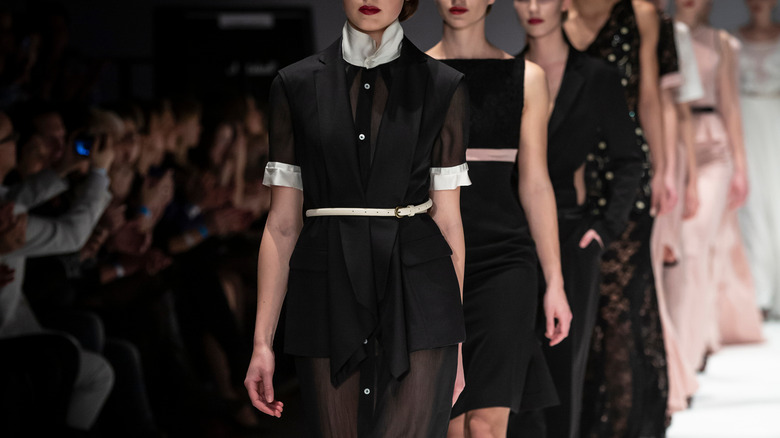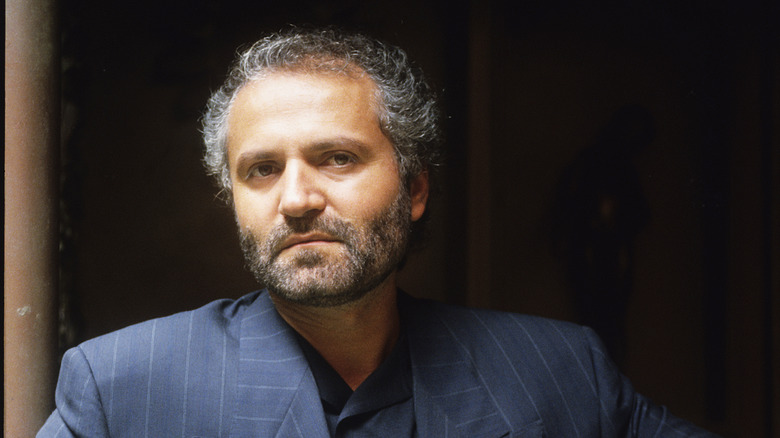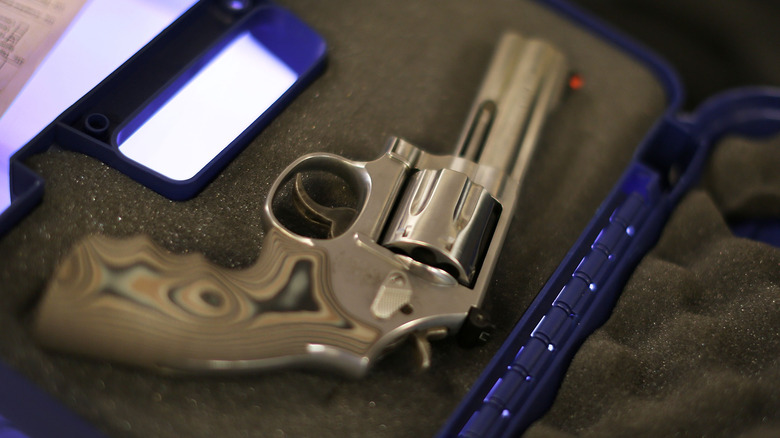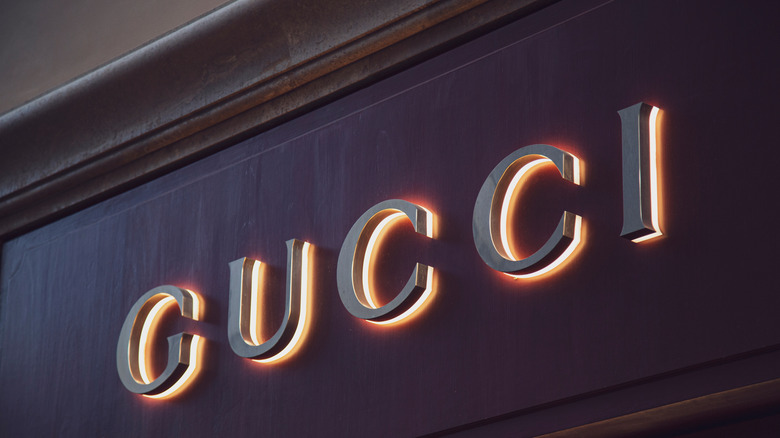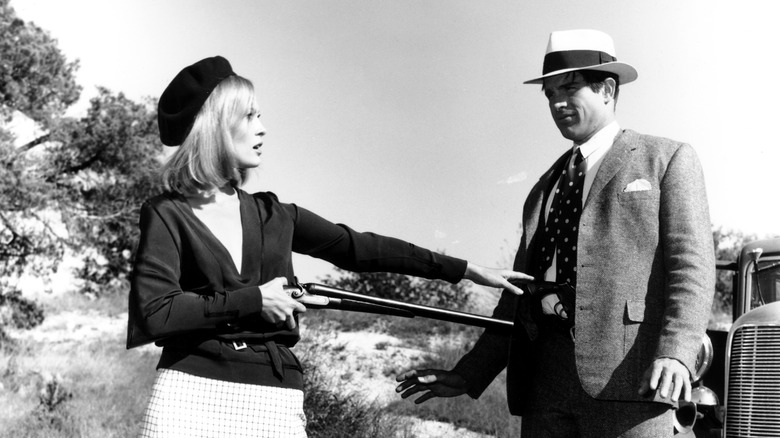5 True Crimes That Rocked The Fashion Industry
The fashion industry is, to casual observers not particularly interested in the business, a niche and,— in some cases — rather weird enterprise. Designers pump out products like handbags or shoes with 1000% markups over the cost of materials, and at prices only the ultra-rich can afford. Similarly, impossibly beautiful models sashay down the runways at fashion shows, showing off outfits that few regular people would dare to wear in public. It can all seem a bit silly as if it's all part of some unfamiliar parallel universe.
Unfortunately, the fashion world is not immune to the travails that bedevil other high-stakes, high-profit industries. Big egos, family drama, unrequited love, the desire to make money at all costs, and other dark motivations have crept into the industry, and more than once that's resulted in violent crime. The victims have ranged from captains of the industry whose names still feature prominently on brands to obscure players who found themselves in the wrong place at the wrong time.
Gianni Versace is murdered by a spree killer
For a time in the 1990s, there was perhaps no bigger name — and definitely no bigger Italian name — in the high-end fashion industry than that of Gianni Versace. The legendary designer hobnobbed with, and dressed, high-profile celebrities such as Elton John and Princess Diana, as Time notes.
Unfortunately, for reasons that remain unclear even 25 years later, Versace found himself in the crosshairs of a spree killer named Andrew Cunanan. The murderer, who had no criminal record prior to his days-long 1997 killing spree, murdered four men in four cities before making his way to Miami. There, on the morning of July 15, 1997, Cunanan shot and killed the designer from point-blank range. He committed suicide days later.
To this day it's unclear what motivated Cunanan to murder Versace. There's little evidence that the men even knew each other, or that they ever even met, although they were both openly gay and ran in the same circles.
A wannabe model murders a playboy
Back in the 1980s, South Carolina teenager Terry Broome decided that fashion modeling was her ticket out of the mundane life she was living was. However, as The New York Times reports, Broome failed to break into modeling, but did manage to attach herself to hangers-on, pimps, drug dealers, and others at the fringe of the fashion industry who were nevertheless unable to get Broome her big break. They did, however, help her develop a fondness for mountains of cocaine.
After years of failing to make it in New York, during which her cocaine addiction had only gotten worse, Broome went to Italy in a last-ditch effort to start her fashion modeling career. Unfortunately, she found only more bad men and more cocaine in Milan.
One of those men was Francesco D'Alessio, the son of a wealthy horse breeder who had a reputation around town for being a lothario. As Broome would later testify, D'Alessio allegedly insulted the would-be model and made crude sexual gestures toward her. After a days-long cocaine binge, Broome allegedly shot and killed the wealthy scion. She was sentenced to 14 years for the murder, according to The Associated Press.
Maurizio Gucci's ex-wife has him killed by a hitman
Though the Gucci brand bears the name of the family that founded it, by the 1990s, the family had been forced out of its own brand due to infighting within its own ranks, as The Guardian reports. The last Gucci to actually have a say in the company was the grandson of founder Guccio Gucci, Maurizio, who'd been forced to sell his stake in the business 18 months before he was murdered.
Indeed, it was that sellout that set into motion the series of events that cost him his life. That's because Maurizio married Patrizia Reggiani, who loved money, power, and being a Gucci, possibly in that order. However, by 1985 Gucci had effectively ended the couple's marriage, and by the middle 1990s he'd started making plans to marry his new love. None of this sat well with Reggiani, who was reportedly bitter over the end of the relationship, her ex-husband's selling out, and of his impending new marriage. Enraged and bitter, she hired a hitman to murder Gucci, who was shot and killed on his way to work on March 27, 1995. The crime went unsolved for two years, but eventually a tip set into motion the series of events that would end with Reggiani going to prison for 18 years. After she was released, when the press asked her why she hired a hitman to kill her ex-husband, she responded that she did so because her eyesight isn't good and she was afraid she'd miss.
Fashionable murderers bonnie and clyde
There was a time in American history — the "Public Enemy Era," as it's called — when outlaws such as Machine Gun Kelly and Baby Face Nelson were celebrated in popular culture, almost to the point of being folk anti-heroes. Of course, they were murderous criminals, but that didn't stop the press from breathlessly covering their exploits.
Two of the biggest names to appear during this era were those of Bonnie Parker and Clyde Darrow, who robbed and murdered their way across parts of the Central U.S., and captivated the American public while doing so. So what is the connection between the two murderers to fashion? As it turns out, as Vogue reports, both loved fine threads — Clyde in particular — and they were often photographed in fashionable outfits that got as much press as the couple's criminal exploits. In particular, Bonnie got typewriters clacking with her berets and scarves, while Clyde was always keen to appear in a tailored suit and hat.
Decades after their deaths, Bonnie and Clyde influenced fashion a second time, albeit indirectly, in the 1990s, after Saks Fifth Avenue unveiled a Bonnie-and-Clyde-themed fashion line, as The New York Post reported.
Parts of the industry are tied to horrific child labor and abuse
It may be uncomfortable to think about, but it's highly likely that the garment you're wearing, especially if it's an item from a "fast fashion" retailer or a knockoff of a big-name fashion brand, was made by a child — possibly a child who has been sold into slavery. As The Guardian notes, even in legitimate fashion, child labor is a part of the process at nearly every step in the supply chain. Children pick the cotton that eventually forms the garments in Uzbekistan, spin it into thread in India, and assemble it in factories in Bangladesh. Unscrupulous suppliers prefer to use children because they're easier to manage, won't unionize, and will work for less money.
To say that the industry is cruel is an understatement. For example, as Irish Times reports, one reporter found galling conditions at an unspecified factory that used child labor. Specifically, the factory owner had broken the children's legs and then tied them back together so that the bones wouldn't heal properly, all in an effort to keep the children from wanting to go outside and play.
